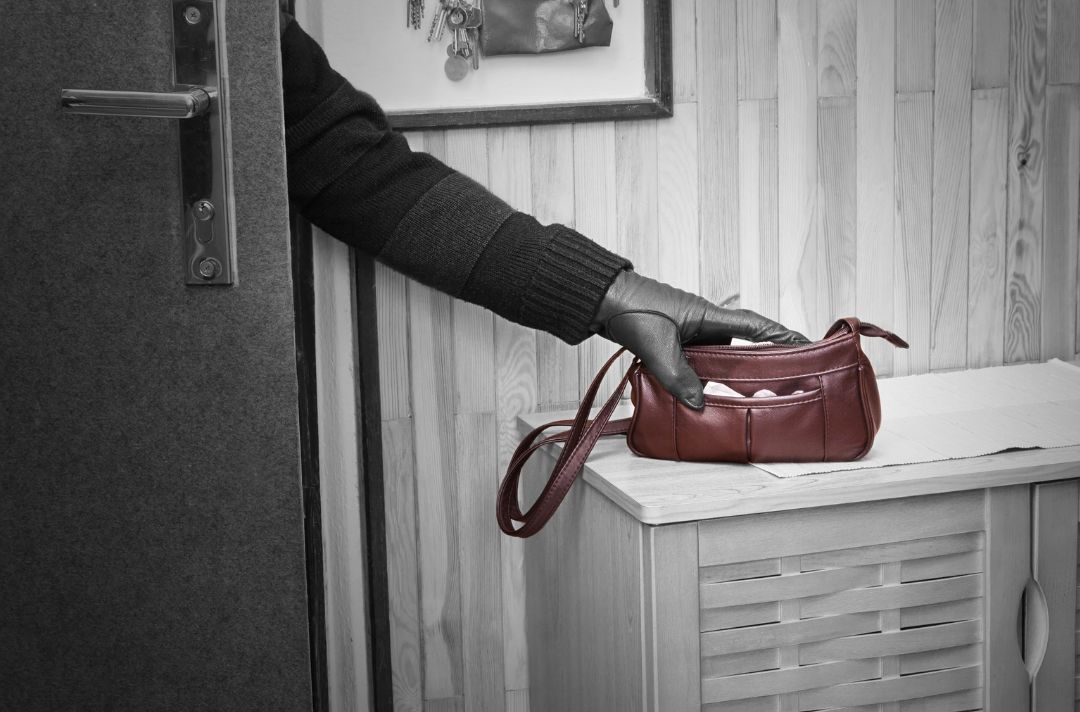





Every year, Maryland witnesses approximately 37,000 reported breaking and entering incidents. Penalties for burglary convictions can include up to 20 years of imprisonment, contingent upon the specifics of the crime and individual case circumstances. Seeking counsel from a seasoned Maryland criminal attorney can offer valuable insights on strategizing against your charge(s). Entrusting your case to a proficient Maryland burglary lawyer, well-versed in criminal statutes, can alleviate the complexities and severity of the legal process.

Burglary Law in Maryland
Burglary, also known as trespassing, housebreaking, or B&E (breaking and entering), is a criminal offense. In Maryland, it is categorized into four degrees, with fourth-degree burglary considered a misdemeanor under Maryland’s criminal code, § 6-205(a)(b). Degrees one through three are all felonies, with variations like second-degree burglary/firearm. Certain types of burglary, such as breaking and entering with explosives, can be classified as either felony or misdemeanor, depending on specific circumstances. The severity of the crime and the degree of burglary alleged can greatly affect potential jail time if convicted.
First Degree
According to § 6-202 of the criminal code, first-degree burglary involves unlawfully breaking into a dwelling with the purpose of engaging in theft or a violent offense. The intent to steal can constitute either a misdemeanor or a felony. In Maryland, this offense carries a penalty of up to 20 years’ imprisonment and is classified as a felony.
Second Degree
In Maryland, second-degree burglary closely resembles first-degree burglary, except for the target location: instead of a private residence, it occurs in a “storehouse.” Typically, a storehouse encompasses various structures like farm barns, factories, schools, or public buildings. It can even extend to specific vehicles like train cars, airplanes, or helicopters. According to § 6-203(a) of the law, second-degree burglary necessitates intent to commit violent crime, theft (robbery), or arson. Classified as a felony, second-degree burglary carries a maximum penalty of 15 years imprisonment.
Second Degree Firearm
Very similar to the overarching second degree burglary law, CR 6-203(b) stipulates that the perpetrator must possess the intention to steal a firearm. Additionally, it specifies that the targeted location must be a storehouse. Nevertheless, if the individual convicted commits the act with the purpose of stealing a firearm, the punishment could escalate to a maximum of 20 years behind bars, rather than the 15-year cap imposed for typical second degree burglary offenses.
Third Degree
Third degree burglary involves entering a dwelling with the intent to commit a crime, distinct from first and second degree burglary which specify particular crimes. This offense constitutes a felony and can result in a prison term of 10 years as a consequence.
Fourth Degree
Fourth-degree burglary in Maryland is classified as a misdemeanor offense, but it shouldn’t be underestimated. According to Maryland state law § 6-205(a)(b), entering a dwelling or storehouse by force constitutes a crime, regardless of the intent to commit further offenses. Essentially, the mere act of breaking in is illegal. Conviction for fourth-degree burglary can result in a prison sentence of up to three years.
Fourth Degree Theft
This specific segment of Maryland state legislation pertains to unlawfully entering a residence, warehouse, backyard, front yard, property, or garden with the intention of committing theft, as outlined in § 6-205(c). This offense constitutes a misdemeanor and carries a potential penalty of up to three years of imprisonment.
Fourth Degree Tools
Section 6-205(d) explicitly prohibits possessing tools with the intent to use them for breaking and entering. This offense is categorized as a misdemeanor, carrying a maximum penalty of three years’ imprisonment.
Possession of Tools for Burglary of Motor Vehicles
In Maryland, possessing burglary tools with the intent to break into any motor vehicle is against the law, akin to fourth-degree tools, but tailored for motor vehicle burglary. The penalties under § 6-206(a) remain consistent with those for general burglary tools. Additionally, a subsection under this law, known as Rogue and Vagabond (§ 6-206(b)), imposes similar penalties for merely being found inside a motor vehicle with the intent to steal it.
Burglary With Explosives
This particular law delineates the criteria for being accused of a specific crime and outlines the possible consequences. To face charges for burglary involving explosives as per § 6-207, the individual must engage in first through third-degree burglary using explosives to gain access to a lock, safe, or vault. Frequently, the offense of fourth-degree burglary with tools coincides with burglary involving explosives. This offense is classified as a felony with a maximum incarceration period of 20 years..
Burglary Research Facility
Entering a research facility without authorization can lead to severe consequences if you’re caught. Penalties may include fines reaching up to $5,000 and a maximum imprisonment of five years. The definition of a “research facility” is broad, often encompassing places like laboratories. According to § 6-208, trespassing with intent to control, manipulate, or damage materials within such a facility is considered unlawful.
Work With a Burglary Lawyer in Maryland
Someone facing burglary charges should seek legal representation from an attorney well-versed in criminal law and trial experience. It’s crucial to engage with a lawyer deeply familiar with burglary statutes, given the various circumstances that can can result in significant consequences depending on the state’s ability to substantiate the charges.
A seasoned Maryland burglary attorney will diligently analyze the case evidence and endeavor to demonstrate the absence of burglary. They will also grasp the nuances that can elevate a burglary charge from a misdemeanor to a felony. Reach out to our firm today to commence your defense.


